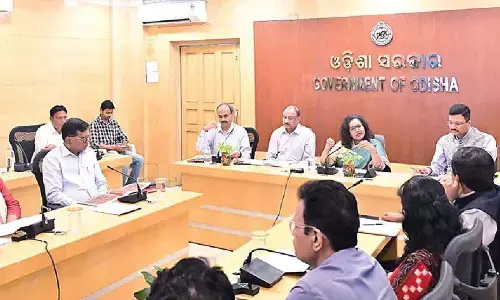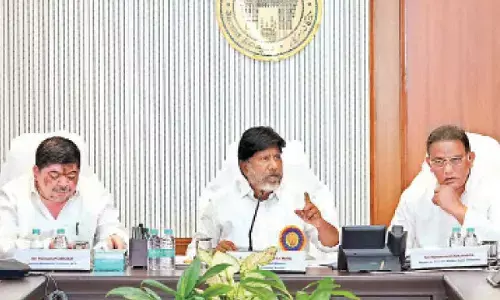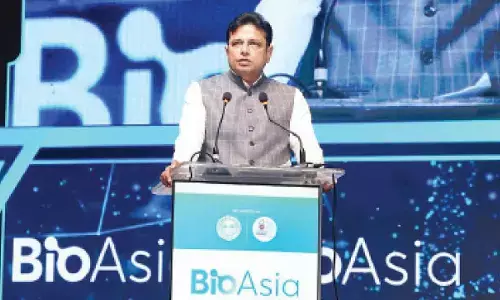Need to incorporate sustainability into the curriculum of engineering courses

- The Engineering curriculum taught so far was solely focused on developing technologies to boost industrial production for stable economic growth, ignoring the adverse impact it would have on the climate. Now we are in dire need of engineers who can drive economic growth in line with the SDGs. The current market requires engineers who can propose and design sustainable solutions to enable the transition to a better global climate.
- To fulfill this requirement, the engineering faculty across disciplines should be trained through skill development programmes in delivering the sustainability curriculum since most of the current faculty have not been exposed to this course earlier. Students and faculty find it difficult to associate sustainability with their specializations. This poses a big challenge to faculty in terms of teaching this subject.
Global economic growth has a profound negative impact on the climate and environment, leading to the incorporation of sustainability in all walks of life. The Paris Agreement is a legally binding international treaty signed by 196 countries at the UN Climate Change Conference-2015, committed to controlling the increase in the rise in global temperature within 1.5 °C. As per the Paris treaty, countries and industries are bound to reduce carbon emissions and mitigate climate change.
Most countries and industries across the globe have pledged to be carbon neutral by 2050, with India committing to be carbon neutral by 2070, in step with the SDGs. To make the sustainability targets easily achievable, the UN has proposed 17 Sustainable Development Goals (SDGs). Engineers play a critical role in achieving these goals by providing sustainable technological solutions.
To meet the targets of the Paris Agreement, companies and industries (including entertainment and arts) are hiring sustainability experts like ESG (Environment, Social, and Governance) Specialists, Green Auditors, and Chief Sustainability Officers. This implies the absolute necessity of incorporating the sustainability curriculum in Engineering courses. Sustainability in higher education should not be limited to the “Green and Clean Campus” concept. Rather, the sustainability curriculum should encompass opportunities for students to learn, practise and implement strategies that enable them to develop tools, products, and procedures to achieve SDG goals.
The Engineering curriculum taught so far was solely focused on developing technologies to boost industrial production for stable economic growth, ignoring the adverse impact it would have on the climate. Now we are in dire need of engineers who can drive economic growth in line with the SDGs. The current market requires engineers who can propose and design sustainable solutions to enable the transition to a better global climate.
To fulfill this requirement, the engineering faculty across disciplines should be trained through skill development programmes in delivering the sustainability curriculum since most of the current faculty have not been exposed to this course earlier. Students and faculty find it difficult to associate sustainability with their specializations. This poses a big challenge to faculty in terms of teaching this subject.
Currently, there are several leading certification organizations that train industry professionals to align their ideas with the sustainable goals of Industry. The certification courses have curricula highly specific to various job profiles related to sustainability but are often expensive.
The lack of sustainability skills among engineering graduates is driving the demand for external certifications. Leading industrial leaders who have excelled in the field of sustainability through engineering practices should provide critical inputs on framing and updating curricula on sustainability. There are several generic books in the area of sustainability, but a lacuna exists in the absence of specific handbooks and textbooks for engineering students .
Most of the leading industries are sponsoring projects and activities in the area of sustainability through CSR funding which is being highly appreciated. Government bodies and policymakers working for the technical and professional education sector should critically assess the need for additional funds to carry out R&D, training, and skills development in the area of sustainability.
Universities and institutes across the globe should provide an ecosystem that nurtures sustainable activities in the form of student projects, activities, workshops and field visits clubbed with community services and incubation cells for commercially viable startups, and student clubs. Such ecosystems should promote interdisciplinary and multidisciplinary approaches toward implementing sustainable solutions for engineering problems. Students should be able to appreciate and acknowledge that it requires an interdisciplinary and multidisciplinary approach rather than solely focusing on domain-specific knowledge to address sustainability-related issues.
It is high time that all engineering institutes acknowledge the current climate crisis and strive to incorporate sustainability into the engineering curriculum, making the graduates industry-ready .
(The author is Assistant Professor, Civil Engineering Department, Nitte
Meenakshi Institute of
Technology, Bangalore)
Global economic growth has a profound negative impact on the climate and environment, leading to the incorporation of sustainability in all walks of life. The Paris Agreement is a legally binding international treaty signed by 196 countries at the UN Climate Change Conference-2015, committed to controlling the increase in the rise in global temperature within 1.5 °C. As per the Paris treaty, countries and industries are bound to reduce carbon emissions and mitigate climate change.
Most countries and industries across the globe have pledged to be carbon neutral by 2050, with India committing to be carbon neutral by 2070, in step with the SDGs. To make the sustainability targets easily achievable, the UN has proposed 17 Sustainable Development Goals (SDGs). Engineers play a critical role in achieving these goals by providing sustainable technological solutions.
To meet the targets of the Paris Agreement, companies and industries (including entertainment and arts) are hiring sustainability experts like ESG (Environment, Social, and Governance) Specialists, Green Auditors, and Chief Sustainability Officers. This implies the absolute necessity of incorporating the sustainability curriculum in Engineering courses. Sustainability in higher education should not be limited to the “Green and Clean Campus” concept. Rather, the sustainability curriculum should encompass opportunities for students to learn, practise and implement strategies that enable them to develop tools, products, and procedures to achieve SDG goals.
The Engineering curriculum taught so far was solely focused on developing technologies to boost industrial production for stable economic growth, ignoring the adverse impact it would have on the climate. Now we are in dire need of engineers who can drive economic growth in line with the SDGs. The current market requires engineers who can propose and design sustainable solutions to enable the transition to a better global climate.
To fulfill this requirement, the engineering faculty across disciplines should be trained through skill development programmes in delivering the sustainability curriculum since most of the current faculty have not been exposed to this course earlier. Students and faculty find it difficult to associate sustainability with their specializations. This poses a big challenge to faculty in terms of teaching this subject.
Currently, there are several leading certification organizations that train industry professionals to align their ideas with the sustainable goals of Industry. The certification courses have curricula highly specific to various job profiles related to sustainability but are often expensive.
The lack of sustainability skills among engineering graduates is driving the demand for external certifications. Leading industrial leaders who have excelled in the field of sustainability through engineering practices should provide critical inputs on framing and updating curricula on sustainability. There are several generic books in the area of sustainability, but a lacuna exists in the absence of specific handbooks and textbooks for engineering students .
Most of the leading industries are sponsoring projects and activities in the area of sustainability through CSR funding which is being highly appreciated. Government bodies and policymakers working for the technical and professional education sector should critically assess the need for additional funds to carry out R&D, training, and skills development in the area of sustainability.
Universities and institutes across the globe should provide an ecosystem that nurtures sustainable activities in the form of student projects, activities, workshops and field visits clubbed with community services and incubation cells for commercially viable startups, and student clubs. Such ecosystems should promote interdisciplinary and multidisciplinary approaches toward implementing sustainable solutions for engineering problems. Students should be able to appreciate and acknowledge that it requires an interdisciplinary and multidisciplinary approach rather than solely focusing on domain-specific knowledge to address sustainability-related issues.
It is high time that all engineering institutes acknowledge the current climate crisis and strive to incorporate sustainability into the engineering curriculum, making the graduates industry-ready .
(The author is Assistant Professor, Civil Engineering Department, Nitte
Meenakshi Institute of
Technology, Bangalore)








